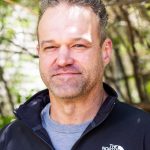Aspen talks mushroom regulations
State law permits natural drug’s cultivation, distribution and use locally

Peter Dejong/AP file photo
There are no magic regulations over psilocybin mushrooms in Aspen — just yet.
Aspen City Council on Monday mulled over how to determine specific boundaries around cultivation, distribution and use of the natural psychedelic drug, which was made legal under Colorado’s Natural Medicine Health Act of 2022.
Colorado’s Senate Bill 23-290, the Natural Medicine Regulation and Legalization Act, introduces a comprehensive framework for managing natural medicines, which aligns with the 2022 act. In addition to mushrooms, it proposes legalizing dimethyltryptamine, ibogaine, and mescaline — drugs which have not been amended.
Aspen Assistant Attorney Luisa Berne said psilocybin mushrooms is the only natural medicine legal under this Colorado framework. This grants local governments — like Aspen — some authority over its zoning and operational regulations without prohibiting outright bans or measures conflicting with state law.
“What we are here to discuss is how psilocybin should be implemented into city code,” Berne said. “Natural medicine is defined as psilocybin, so what we are talking about is mushrooms and its derivatives.”
The legislation designates the Division of Professions and Occupations to license and regulate facilitators who oversee natural medicine use, including promulgating necessary rules and handling investigatory and disciplinary actions. It also creates a Natural Medicine Advisory Board to examine related issues and recommend regulatory actions.
The Department of Revenue’s new Natural Medicine Division is also tasked with licensing and regulating businesses involved in the cultivation, manufacturing, testing, and distribution of natural medicines like mushrooms. This includes setting testing standards in coordination with the Department of Public Health and Environment.
Berne said there are five types of natural medicine licenses people can hold: healing centers, cultivation facilities, product manufacturers, and testing facilities.
“A facilitator license would be like a therapist for a client. They can charge for the therapy session but not for the actual psilocybin,” she said. “Unlike our liquor code, this cannot be near childcare centers and schools.”
State regulations already mandate that Natural Medicine facilities be at least 1,000 feet from schools, childcare centers, and similar establishments. Meanwhile, the city cannot implement restrictions that go against the state code, ban natural medicine operations, and create its local licensing restrictions.
Aspen, however, can impose stricter zoning or operational rules within city limits. For instance, the city could require such facilities to align with specific zoning categories, potentially restricting them to office use in the commercial core while excluding them from ground-floor spaces.
Staff sought guidance from the Council on whether to pursue these additional local regulations.
“Here are the three things that would be helpful to think about,” Berne said. “Whether the city should allow limits to natural medicine clinics, as if 1,000 feet from schools is enough and the duration of operations.”
If the Council decides to act, it must determine specific rules for facility operations, consider whether to expand the distance requirements from schools, and set operational time restrictions.
City Council member Sam Rose asked what other cities have implemented at this point.
“Other cities are in the same position as Aspen right now,” Berne said. “I think there is a possibility that home practices could become prevalent, which is something to consider. This is the first step in directing staff to come up with potential ordinances.”
Rose said he is curious about other precedents set by other municipalities.
City Council member Ward Hauenstein said that this is not about decriminalizing recreational use, but the encouragement is for medicinal use.
“I feel that, as far as some of the questions, such as ground-floor use and use under a licensed therapist, which can be used for PTSD, depression, and other effective uses,” Hauenstein said. “This bill is trying to prevent pharmaceutical companies from making their synthesized product and taking control of the distribution and sale.”
Hauenstein said that the use should be limited to commercial zones. Other council members agreed that use should be under therapeutic supervision.
The prospect of adopting such measures reflects concerns about the potential proliferation of natural medicine facilities, particularly in residential neighborhoods. Staff will work on developing a city code that allows for the use of natural medicine, which will be brought up at further city council meetings before the law goes into effect at the beginning of 2025.
Natural medicine funding appropriations for the 2023-24 fiscal year include over $1.6 million allocated to the Department of Revenue, the Department of Law, and the Department of Public Health and Environment to implement the law.
The act outlines penalties for violations, including petty drug offenses for underage possession and unauthorized cultivation or public consumption. It also protects individuals engaged in lawful use from certain civil penalties, rights denials, or criminal charges.
The act also permits sealing eligible conviction records and ensures actions related to natural medicines do not solely constitute child abuse, probation violations, or grounds for discrimination.
Aspen Ideas: Humanitarianism through architecture
Architecture can uplift the elite or house the houseless. These were the concepts explored Thursday at Aspen Ideas Festival’s “How Architecture Shapes Humanity” seminar, where notable architects, including Japan’s Shigeru Ban, discussed their community-based approach to architecture.
Conservationists urge the public to disinfect all river gear after use, including waders, paddle boards, and kayaks
Aquatic Nuisance Species (ANS) such as zebra mussels, rusty crayfish, quagga mussels, New Zealand mud snails, and invasive aquatic plants have already caused lasting damage to rivers and lakes across the state.










